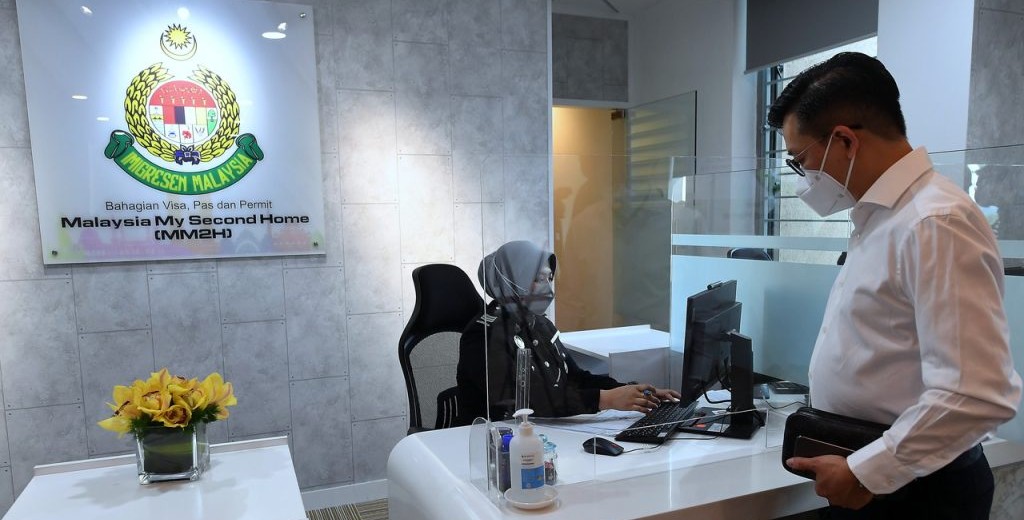After nearly a year-long pause, Malaysia’s once-popular MM2H programme is active again, though with significant shifts in focus and costs. Here’s a look at the revised visa scheme, its implications, and emerging applicant trends.
After nearly a year of suspension, the Malaysian government is once again endorsing MM2H visas by stamping them into passports. This news was relayed to us by the MM2H Agents Association, as no official announcement has been issued by the Ministry of Tourism, which oversees the programme. While clarity on the new visa terms has been slow to emerge, we are gradually piecing together the updates and changes.
One significant challenge we’ve faced is the need to reapply as an agent. The government revoked the licenses of all existing MM2H agents, a decision that has caused considerable frustration, particularly for those like us who have consistently followed the rules and worked hard to support the programme’s success. We would have liked a fast-track process for previously approved agents, but this has not materialized. Our reapplication was submitted in early September, and although we are still awaiting approval, we have been advised that it should happen soon.
MM2H: A SHIFT IN FOCUS
Recent documents released by the Ministry indicate a shift in the programme’s focus. While the MM2H visa was originally designed to attract retirees, it is now being repositioned as an “economic generation” initiative. This rebranding emphasizes its potential to boost Malaysia’s property market, education sector, domestic tourism, and healthcare industry.
This change is reflected in the programme’s relatively high entry costs. Even the lowest-tier of the national MM2H visa requires a fixed deposit of US$150,000 (approximately RM670,000), and most states mandate a minimum property purchase price of RM1 million for foreign buyers. These costs make MM2H one of the more expensive residency programs in Southeast Asia, especially when compared to retirement visas offered by Thailand, Indonesia, or the Philippines.
The introduction of the Platinum Tier MM2H visa, aimed at individuals interested in working or investing in Malaysia, further underscores the programme’s shift towards economic benefits.
CONCERNS FOR RETIREES
The previous MM2H visa brought substantial economic benefits to Malaysia, especially through retirees who relocated here. According to our research, over 60% of retirees who moved here under the programme purchased homes. Being older, they often required healthcare services, which contributed to local healthcare revenue and having more free time than those employed here, were free to travel extensively within Malaysia. Most recommended the country to friends and relatives, and hosted visitors, further boosting tourism.
Interestingly, our research showed 18% who chose to rent under the old MM2H scheme earned over RM40,000 a month so would have made a welcome contribution to several of the sectors that it is hoped will benefit from the new visa.
However, the new property ownership requirements, which mandate holding a property for 10 years, have deterred many retirees. This segment was the backbone of the earlier programme, and their reduced participation raises concerns about whether the revamped MM2H can achieve the same level of success.
The education aspect of the programme also saw significant interest, particularly from South Korean families wanting their children educated in Malaysia’s English-language schools. Whether these applicants will remain interested given the increased costs and required property ownership remains uncertain.
A NEW DEMOGRAPHIC?
Early indications suggest that the revamped MM2H program is attracting strong interest from Chinese nationals, many of whom have expressed interest in relocating out of the country. Additionally, younger Russians seeking to escape the war in Ukraine have expressed interest. However, there is a risk that younger applicants may seek employment opportunities, which could pose challenges for the programme’s administration.
For retirees who find the MM2H requirements prohibitive, the newly introduced Special Financial Zone (SFZ) MM2H visa in Johor may offer an alternative. This visa appears more retiree-friendly and has a much lower cost of entry, making it a potentially attractive option for older applicants with limited financial resources.
LOOKING AHEAD
The MM2H programme’s future impact remains uncertain. While the government aims to generate greater economic benefits with the new structure, the exclusion of a large portion of retiree applicants could reduce its overall appeal. At its peak, MM2H attracted 6,000 applicants in a year, bringing billions of ringgit into Malaysia’s economy. Whether the revamped program can replicate this success will depend on its ability to attract a broader range of applicants while still maintaining strong economic contributions.
For more information about the MM2H and related visas, visit the help desk at www.MM2H.com, which can provide answers to most of your questions.
"ExpatGo welcomes and encourages comments, input, and divergent opinions. However, we kindly request that you use suitable language in your comments, and refrain from any sort of personal attack, hate speech, or disparaging rhetoric. Comments not in line with this are subject to removal from the site. "





















